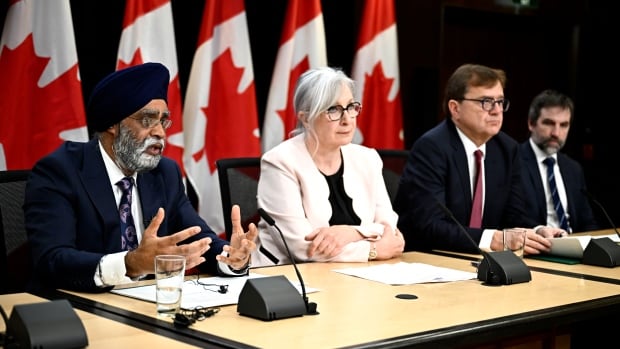The federal government says Canada could face another devastating wildfire season due to an unusually warm winter, widespread drought conditions and above-normal temperatures predicted for the coming months. ing.
Drier and hotter weather is expected this spring and summer, putting much of the country at risk of wildfires, officials said at a technical briefing Wednesday.
Some regions, including southern Quebec, eastern Ontario and western Canada, will have a higher than normal chance of fires in April. The risk continues from May through the summer, but officials stressed that much depends on rainfall during this period.
“While it is impossible to predict the summer ahead of us, it is clear that wildfires will remain a major challenge for Canada into the future as the effects of climate change continue to intensify. It is increasing day by day,'' said Emergency Preparedness Minister Harjit Sajjan.
Drought conditions, less than normal snowfall
Last year was the worst wildfire season in Canadian history, based on a variety of metrics including total area burned.
I didn't feel very safe during the winter.
More than 70 wildfires are already burning, mostly in northern British Columbia, northern Alberta and the Northwest Territories, officials said.
Many of them are residual fires Things that have been smoldering since last season.
Officials say dry conditions and unusually low snowfall across much of the country are making wildfires more likely to start again.
“As we continue to get hotter and drier across the country, wildfire season could start earlier, end later, and become more explosive,” Sajjan said.
A government map showing the current drought situation shows large parts of the country in “abnormally dry” conditions.
The worst conditions, or unusual and extreme drought conditions, will occur in southern Alberta, central and northern British Columbia, and parts of the southern Northwest.
Canada is warmest winter on record The three months from December to February were 5.2 degrees Celsius warmer than the norm since Canada began record-keeping in 1948, said Environment and Climate Change Canada senior climatologist David Phillips.
taxing on resources
Last year's wildfires strained resources. A total of 5,500 firefighters from outside Canada took part in fighting the fire.
Natural Resources Minister Jonathan Wilkinson said the government was consulting with other countries to improve the sharing of resources to fight bushfires and was training more than 600 new firefighters.
“Wildfires have always occurred across Canada, but what's new is their frequency and intensity,” he says.
“The science is clear that the root cause of this is climate change, which is why Canada has the most comprehensive climate change plan in the world and why we continue to advance it every day.”
The federal government also announced plans to increase tax credits available to volunteer firefighters and search and rescue volunteers in the next budget, a change the NDP had requested.
The government said the measure targets rural areas. Firefighters there are mostly volunteers and face wildfires that are becoming more frequent due to climate change.
The tax credit increases from $3,000 to $6,000 for tax years starting in 2024, saving volunteer firefighters up to $900 a year.
As this year's wildfire season approaches across Canada, Chief Jason Woodbury of the Misquash Fire Department, P.E.I., wants people to be proactive in keeping their homes and property safe. As he told his CBC's Sheehan Desjardins, there are simple actions people can take to reduce the risk from all types of fires.



